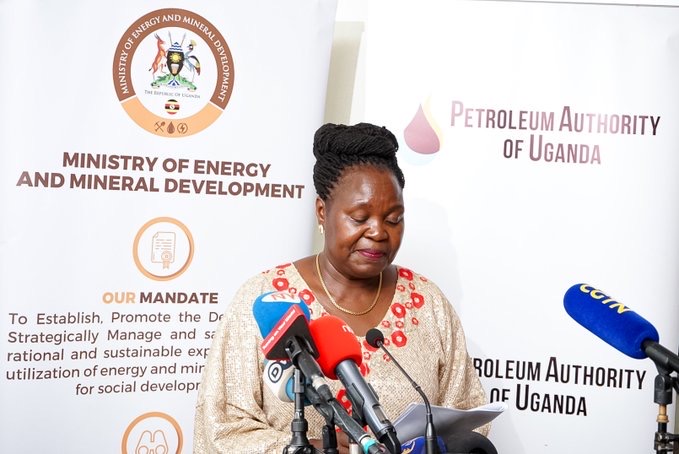Thursday, January 25th, 2024 | By

Ugandan Minister for Energy and Mineral Development, Dr. Ruth Nankabirwa has said the government is considering compulsory land acquisition from absentee landlords and the affected people that have refused the compensation offers for delaying the construction of East African Crude Oil Pipeline (EACOP).
“There are 116 cases under consideration for compulsory land acquisition due to reasons such as untraceable individuals, land owner disputes and refusal of compensation offers,” said Nankabirwa while addressing the media on the status of oil and gas sector on January 23.
She explained that some landlords have disputes among themselves and have failed to agree on who should sign for the compensation. She also noted that some people have rejected the compensation offers allegedly because some organizations have corrupted their minds to fail the EACOP project.
She warned that that the government has involved the Attorney General and that arrangements are underway to acquire the land in case the owners to continue to either reject the compensation offer or absent themselves.
“The constitution gives the mandate to the government to compulsorily acquire that land and we have involved the Attorney General and very soon we shall acquire that land,” the minister said.
Dr Nankabirwa disclosed that the government will deposit money worth the value of land in the court and the landlords will access it there when they appear or resolve their disputes.
“We shall deposit money in courts. If the absentee landlords one day appear, they will get this money. If those quarrelling finish, they will still find the money.” She said.
The 1,443km-long EACOP will run from Hoima district in Uganda to Tanga Port in Tanzania passing through 10 districts in Uganda including Hoima, Kikuube and Kakumiro in Bunyoro region and Kyankwanzi, Mubende, Gomba, Sembabule, Lwengo, Rakai and Kyotera.
The EACOP project spans approximately 2,740 acres in Uganda, affecting 3,660 individuals, with 177 requiring resettlement houses.
Atleast 95% of the affected persons have signed compensation agreements, with 91% of these compensations completed according to Nankabirwa.
Copyright ©2025 Community Green Radio . All Rights Reserved. Designed : Lwegatech